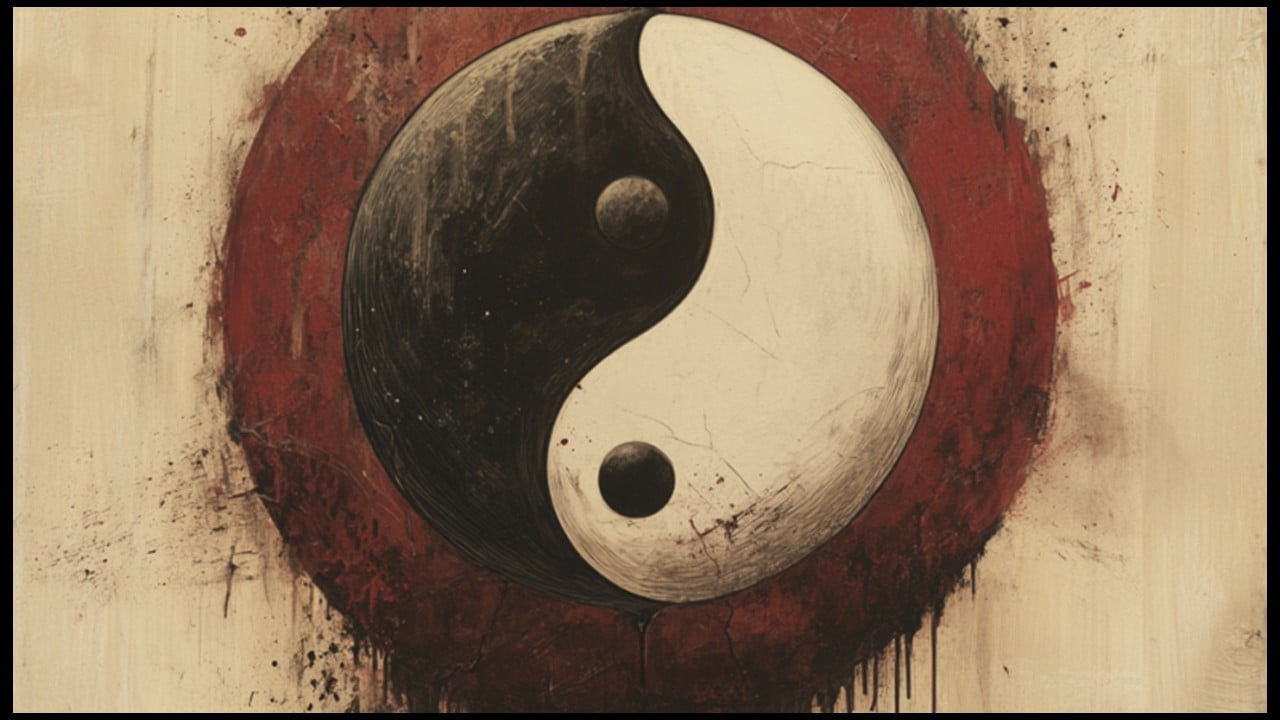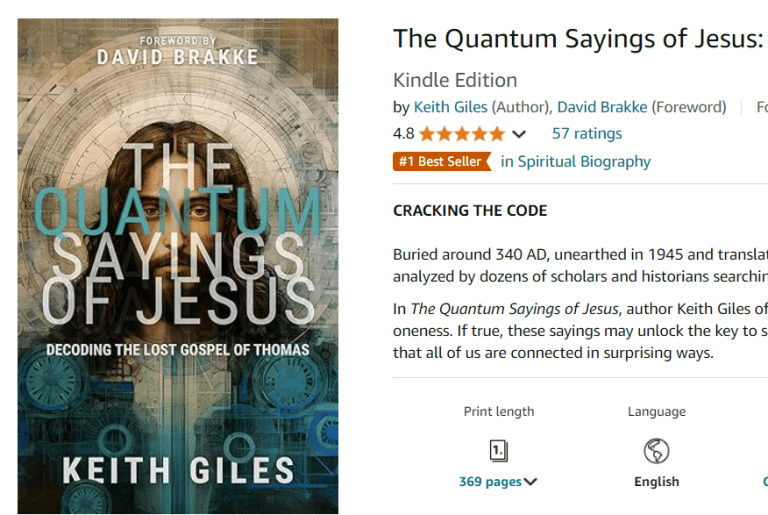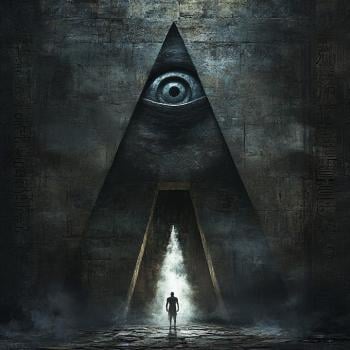
“It wasn’t just at the time of his manifestation that he laid down his life, but since the beginning of creation that he gave his life in offering. In the hour of his desire, he came to deliver this offering. Since it had been promised, he came first to take it from those who had imprisoned life and stolen it for themselves. He revealed the powers of the Gift, and brought goodness to the heart of the wicked. Light and darkness, life and death, right and left, are brothers and sisters. They are inseparable. So, goodness isn’t always good, violence isn’t always violence, life isn’t always enlivening, nor is death truly death.” [The Gospel of Philip, vs. 9b-10]
The answer to the question, “Why did Jesus have to die?” has been one of the earliest theological mysteries of the Christian faith. Sadly, the sacrificial model has often been the default for many Christians who believe that our separation from God required a blood sacrifice to cleanse our souls from the stain of sin. Therefore, the image of Jesus as the sinless Lamb of God has dominated our imaginations from early on and colored our understanding of who God is, and why Jesus had to die.
Blinded by Atonement
This default theological framework – or Atonement Theory – obscures our ability to read passages like the one above as anything other than a description of Jesus as the perfect sacrifice who came to be offered on the cross and who was sent to appease God’s wrath against the human race by dying in our place. But notice that none of that is being said in the passage above. If we read that into the text, it’s because of our prior programming and indoctrination, not because it’s what’s being said.
Unraveling this Penal Substitutionary Atonement theory – which wasn’t introduced into the Christian faith until John Calvin fabricated it in the 1500s – isn’t easy to do. I wrote an entire book on this topic [Jesus Unforsaken: Substituting Divine Wrath With Unconditional Love], so I understand how difficult it can be to approach the question without applying that filter of blood sacrifice to the equation.
But, for the sake of this chapter, let’s simply suggest that the answer to the question, “Why did Jesus have to die?” is best answered by reframing the question like this: “Why do you have to die?”
When we shift the focus away from Jesus, specifically, and ask ourselves why we have to die, the answer becomes more obvious: We have to die because we are mortal human beings. Exactly. And this is also why Jesus had to die: He took on mortal flesh.
So, the opening passage here in this section of the Gospel of Philip is not about the crucifixion at all. It’s about the Incarnation of Christ.
Parallels in Paul
Let’s examine a similar passage from Paul’s epistle to the Philippians and compare it to what we read here in Philip’s Gospel:
“In your relationships with one another, have the same mindset as Christ Jesus: Who, being in very nature God, did not consider equality with God something to be used to his own advantage; rather, he made himself nothing by taking the very nature of a servant, being made in human likeness. And being found in appearance as a man, he humbled himself by becoming obedient to death—even death on a cross!” [Philippians 2:5-8]
Yes, the passage ends with a reference to the death of Jesus on the cross, but the main point isn’t his death, it’s his humility. Christ “did not consider equality with God something to be used to his own advantage” and so the Christ let go of that power and “made himself nothing” in the Incarnation “by taking the very nature of a servant, being made in human likeness.”
This is our example. We are encouraged to “have the same mindset as Christ” as people who are “in very nature God” and who, like God, “(do) not consider equality with God something to be used (for our) own advantage.”
Seeing God’s True Face
As long as we are distracted and confused by the idea of God as a wrathful volcano deity who demands the innocent blood of a child sacrifice before accepting us, we will miss the entire point: God is not wrathful. God is humble. God is not using power over us to God’s own advantage. God is always laying aside power to bring us closer. God does not manipulate us. God does not demand our worship or command our service. Instead, God lays everything down and serves us out of a heart of pure love.
Christ is what God looks like. Christ is the true face of the Father.
So, when Philip’s Gospel says something like this:
“In the hour of his desire, he came to deliver this offering. Since it had been promised, he came first to take it from those who had imprisoned life and stolen it for themselves. He revealed the powers of the Gift, and brought goodness to the heart of the wicked.”
It’s not about the crucifixion of Jesus. It’s about the Christ taking on human form in service to humanity. Christ took on flesh and offered his life – his kind of life and quality of life – to everyone. By doing so, the eternal Christ accepted the penalty for this decision and gladly exchanged life for an inevitable death at the hands of those who still believed God was angry and that we were separated from God by our sins.
But this is not about separation because we were never separated from God. In fact, nothing could ever separate us from the love of God:
“For I am convinced that neither death nor life, nor angels, nor demons, neither the present, nor the future, nor any powers, neither height, nor depth, nor anything else in all creation will be able to separate us from the love of God that is in Christ Jesus.” [Romans 8:38-29]
Changing Our Minds
Any sense of separation from God is “in our minds” [Col.1:21] and once we realize that, our eyes are opened to the glorious truth of our Oneness with God that no one and nothing could ever change.
Finally, this section of Philip’s Gospel ends with a declaration of the Oneness of all things:
“Light and darkness, life and death, right and left, are brothers and sisters. They are inseparable. So, goodness isn’t always good, violence isn’t always violence, life isn’t always enlivening, nor is death truly death.”
The illusion of separation is expressed here in terms of the interconnectedness and interdependence of seemingly opposing forces and emphasizes that these forces are not absolute, but complementary. In other words, all things exist as inseparable and sometimes contradictory opposites. The male is in the female, and the female is in the male. The darkness is in the light and the light is in the darkness.
All Is One
This is exactly what we find expressed as the Yin-Yang concept from Chinese philosophy, and it’s also expressed by Jesus in the Gospel of Thomas in Saying 22:
“Jesus said to them, “When you make the two into one, and when you make the
inner like the outer and the outer like the inner, and the upper like the lower, and when you make male and female into a single one, so that the male will not be male nor the female be female, when you make eyes in place of an eye, a hand
in place of a hand, a foot in place of a foot, an image in
place of an image, then you will enter the Kingdom.”
When we awaken to Divine Oneness, our eyes are opened and we can see reality as it truly is. We are expressions of the Divine Consciousness. There is no separation.
In other words, everything is connected, and all things contain all things within.
This is why the Christ gladly takes on human mortality and becomes a servant to all: because we are the All and the All is everything.

The book from Keith Giles, “The Quantum Sayings of Jesus: Decoding the Lost Gospel of Thomas” is available now on Amazon. Order HERE>
Keith Giles is the best-selling author of the Jesus Un series. He has been interviewed on CNN with Anderson Cooper, Coast to Coast Radio with George Noory, USA Today, BuzzFeed, and John Fugelsang’s “Tell Me Everything.”
He co-hosts The Heretic Happy Hour Podcast and his solo podcast, Second Cup With Keith which are both available on Spotify, Amazon, Apple, Podbean or wherever you find great podcasts.

















